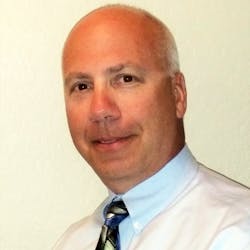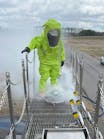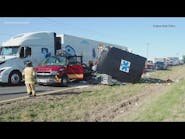As a retired fire captain, licensed counselor and founder of Firefighter Behavioral Health Alliance (FBHA), I wrote this article not about expertise, for I am not an expert on suicide. However, I now understand a little about why firefighters take their life and about the effect that has on their family.
FBHA has tracked these tragic events for 10 years. I have talked to more than 1,500 chief officers and family members and collected data, such as age, gender, rank, method and known reason. Why was FBHA founded? For three reasons: to remember our brothers and sisters, to understand why firefighters took their own life and to assist family survivors.
FBHA found that the number one known reason for firefighters and EMS members dying by suicide were family or relationship issues, although many had additional issues that they dealt with, too.
Disconnect and brainwashing
In our workshops, two elements that we discuss regularly are cognitive disconnect and cultural brainwashing.
To FBHA, cognitive disconnect simply means that we base our decisions on the emotions that we experience in the moment. Emotions can include anger, depression, jealousy, guilt and rejection. If we can understand our emotions, we might be able to stop our brothers and sisters from killing themselves and to prompt them to seek the help that they desperately need.
Relationships, for whatever reason, are difficult on members and families. Our most basic component to help to build relationships is communications. The ability to learn how to listen to each other, during good and bad times, is essential to strengthen our relationships. If we, as first responders, are struggling, we must talk to our loved ones, allow them to walk by our side, during our difficult times.
Cultural brainwashing, in FBHA’s world, isn’t a negative issue but one that most of us fall prey to. When we don our uniform, our belief is to be strong, courageous, show no weakness and handle our issues on our own. Who expects us to act this way? Our brothers and sisters we work with. The communities that we serve. The traditions of the fire service. However, when we are dealing with personal or professional issues, walking alone isn’t the answer.
Our main recommendation is for all of us to do an internal size-up each day. Simply put, ask yourself why you are feeling or acting the way that you are. Furthermore, the best thing that we can do is to listen to those who love us. They see us better than we ever will see ourselves.
For fire departments, EMS organizations and dispatch centers, remember to include families in functions well after they lost their loved one. A member’s death becomes a double loss for so many, because not only do they lose a loved one, but they lose a connection to a second family that they came to know and love, too.
Recommendations
Family survivors of firefighter suicides are some of the strongest people who I ever met. Their willingness to support other families who recently lost a firefighter amazes me. Yet, are we, as fire departments, being proactive or reactive regarding behavioral health for our departments and the families who are left behind? FBHA has held an annual Those Left Behind weekend retreat for families since 2015. The insight of the more than 200 families who I met is incredible. Here are some FBHA recommendations when working with survivors.
Annual training for family: FBHA created a workshop to address just spouses, partners and family members. We wanted family members to know how behavioral health and the “job” have a direct correlation. In addition, we educate families on how it affects them and their children at home.
Allow the family to make decisions regarding services: The cause of death determines the type of service, and FBHA has seen a full line-of-duty-death (LODD) funeral when the suicide was a result of post-traumatic stress. However, most suicides that were validated by FBHA were because of family/marital issues followed by depression. So, develop a few levels of funeral services. Level I would be a full LODD. Level II would be a service with neighboring towns doing a walk-through, and a Level III would be just a department service. Remember, the family has an option on how or whether there will be a service.
Offer families counselors who understand our culture: If you haven’t trained or talked to your Employee Assistance Program counselors, chaplains or community counselors about helping family members, please do so as soon as possible.
Listening to family members is your greatest asset: Try not to solve or understand their emotions (unless you experienced a loss yourself). Listening is a communications necessity, yet it is role-reversal for first responders, because we always are called upon to solve issues when the tones drop. When families speak, sometimes just a nod of your head or “Uh-huh” or silence might be effective. Don’t put words in their mouth. Sitting in silence is difficult but very powerful.
Avoid isolation: FBHA has seen numerous situations where crew were asked to stay away from or not to talk to the family of a member who took his/her life because of possible legal action brought by families, even if there were no indications for it. Isolating a family from department parties, picnics and the holiday seasons is something to avoid for the overall mental health of that family.
In memory of...
Joshua Milton, Seattle Fire Department
“I lost my mother when she was only 58 years old. The grief was intense. But to lose my son, who I loved so much, a son who was in the Seattle Fire Department with me, a son who was just becoming my best friend. Gone! ‘I don’t understand. I can’t fix it.’
“I’ve spent thousands of hours trying to figure out the relentless grief and pain. It was five years on Dec. 11, 2020. The grief has evolved. My wife and I are getting better. I have almost given up on the question, ‘Why?’ I see my son in his son, Austin. It used to be too much to witness. Not anymore. I cherish it now.
“We were told that things will ease up in four or five years. At first, I thought I could make myself better sooner than that: Josh wouldn’t want me to suffer like that. But it was true for me. It did take that long.”
—Jeff Milton, father, lieutenant (ret.), Seattle Fire Department
Crystal Murphy, Lacy, WA, Fire District
“Crystal had an infectious laugh and truly the best hugs. Losing her on Christmas almost three years ago has forever changed me and our two children, who were 5½ and 7 at the time. I only hope that we can carry her light and spirit to help others who struggle, so their families don’t have to experience our grief.”
—Heather Murphy, spouse






